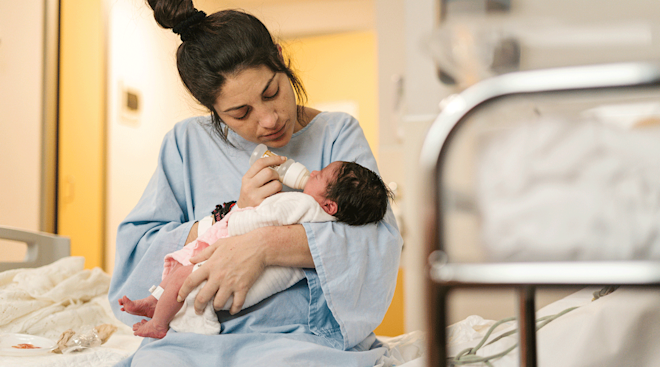EPA Bans Weedkiller Proven Harmful to Developing Fetuses
There are plenty of things parents look out for to protect their unborn children, from avoiding deli meat and secondhand smoke to forgoing licorice. Unfortunately, there are bigger risks at play, from pollution to pesticides that parents can’t control. Luckily, that’s where the US Environmental Protection Agency (EPA) comes in.
For the first time in 40 years, the EPA has issued an emergency ban on the common pesticide dimethyl tetrachloroterephthalate (DCPA), also known as Dacthal. The ban comes after scientists discovered a link between a pregnant person’s exposure and harm to developing fetuses. The pesticide has been used widely for weed control in agricultural and non-agricultural settings. From farms growing broccoli, Brussels sprouts, cabbage and onions to golf courses, turf and private lawns, pregnant women are often unaware of exposure.
According to the EPA, pregnant women who are exposed to the pesticide could experience changes in fetal thyroid hormone levels; changes that have been linked to low birth weight, impaired brain development, decreased IQ, and impaired motor skills later in life, some of which may be irreversible.
“DCPA is so dangerous that it needs to be removed from the market immediately,” said Assistant Administrator for the Office of Chemical Safety and Pollution Prevention Michal Freedhoff in a press release. “It’s EPA’s job to protect people from exposure to dangerous chemicals. In this case, pregnant women who may never even know they were exposed could give birth to babies that experience irreversible lifelong health problems. That’s why for the first time in almost 40 years, EPA is using its emergency suspension authority to stop the use of a pesticide.”
Mily Treviño Sauceda, the executive director of Alianza Nacional de Campesinas (The National Alliance of Farmworker Women), also applauded the emergency ban. “Alianza is pleased to see the EPA make this historic decision. As an organization led by farmworker women, we know intimately the harm that pesticides, including dimethyl tetrachloroterephthalate (DCPA or Dacthal), can inflict on our bodies and communities. This emergency decision is a great first step that we hope will be in a series of others that are based on listening to farmworkers, protecting our reproductive health, and safeguarding our families,” she said.
Navigate forward to interact with the calendar and select a date. Press the question mark key to get the keyboard shortcuts for changing dates.





















































